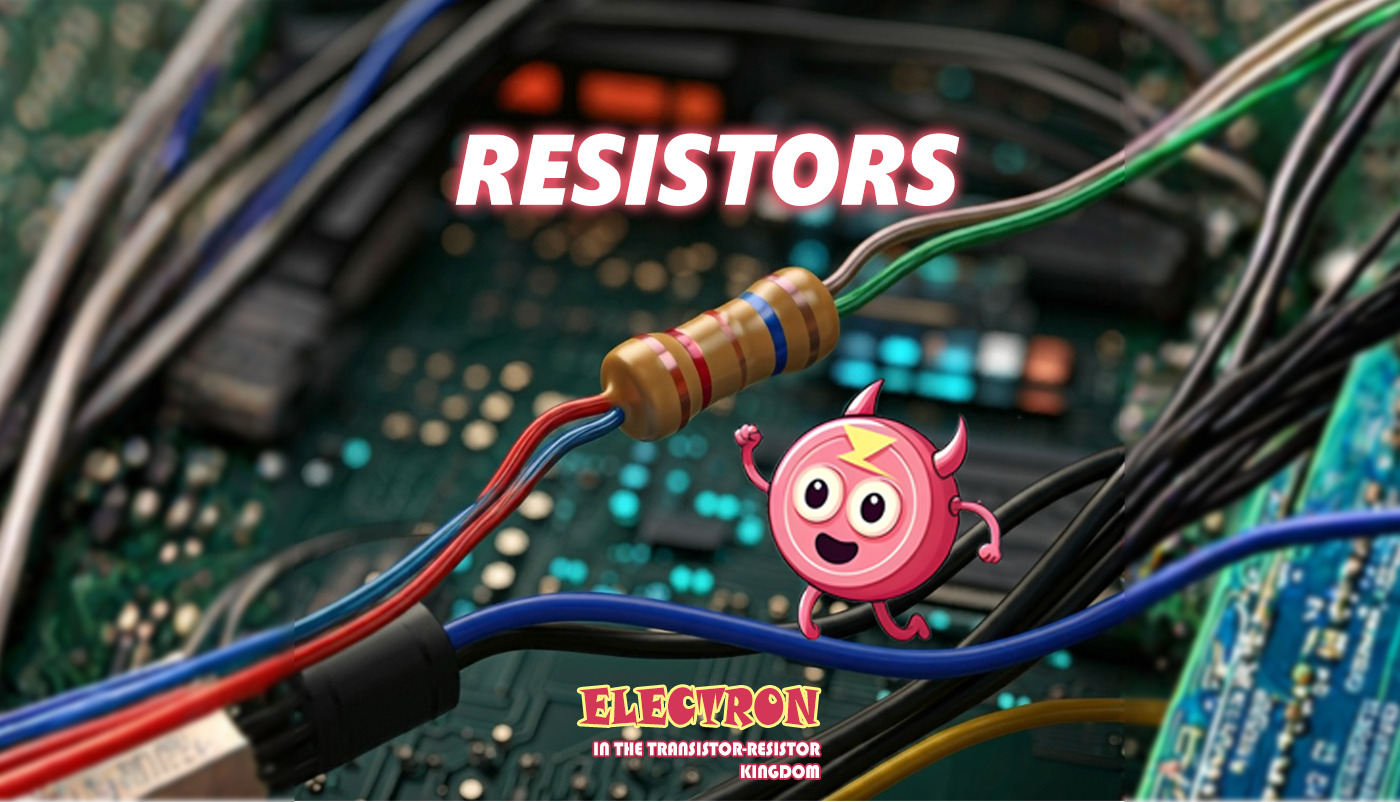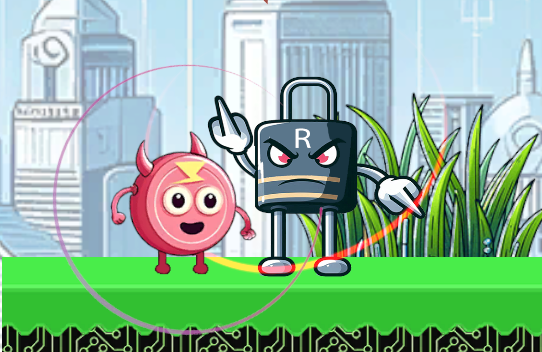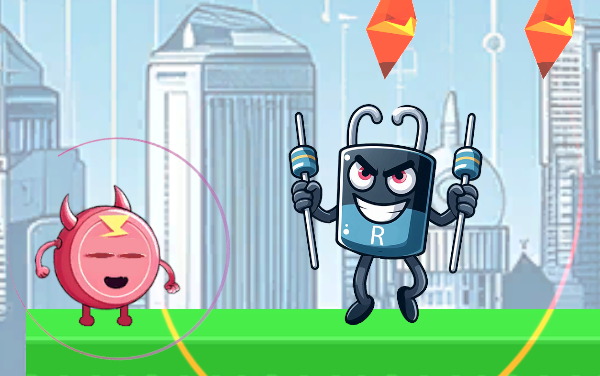Resistors: Absorbing Electron Energy
03 Oct 2024

Resistors are passive electronic components designed to limit electric current and distribute voltage in electrical circuits. Their primary function is to convert electrical energy into heat and redistribute energy. To understand how resistors "absorb" electron energy, let's look at the physics of how they work and their role in circuits.

1. How a Resistor Works
Resistors operate based on Ohm's Law, which states that resistance (R) is the ratio of the voltage (U) across an element to the current (I) passing through it:
R=IU
When an electric current passes through a resistor, electrons collide with the atoms of the resistor material. These collisions cause the kinetic energy of the electrons to be converted into heat energy, causing the resistor to heat up.
2. Absorbing Electron Energy
Electrons and Electric Current: Electric current is the orderly movement of charged particles (mostly electrons) through a conductor. In a resistor, the electrons slow down due to the resistance of the material, and this absorbs energy from the player.
Energy Conversion: As electrons move through a resistor, they collide with atoms and molecules of the resistive material. These collisions transfer some of the electrons' kinetic energy to the atoms, causing them to vibrate and, as a result, increase the temperature of the resistor material.
Heat Loss: The electrons' energy is converted into heat, which is dissipated into the environment. This phenomenon is called Joule heating and is described by the Joule-Lenz law:
Q=I^2⋅R⋅t
where:
Q is the amount of thermal energy released,
I is the current,
R is the resistance,
t is the time.
3. Energy Conversions in a Resistor
The electrical energy passing through a resistor is converted into thermal energy, and this leads to:
a) Energy Loss: In circuits where it is necessary to limit the current or distribute the voltage, energy loss in the form of heat is inevitable.
b) Resistor Heating: The heating of a resistor depends on its power (dissipated energy). Therefore, each resistor has a power rating, which indicates the maximum allowable amount of heat it can dissipate without damage.
c) And most importantly, slowing down the player.
4. Examples of using resistors in circuits
Current limiting: In circuits with power supplies, resistors are used to limit the current to prevent overloading of components.
Voltage dividers: Resistors are used to create voltage dividers that allow the desired voltage values in circuits.
Component protection: Resistors protect sensitive components such as LEDs or transistors from overcurrent.
5. Types of resistors
There are different types of resistors, each with its own characteristics and purposes:
Fixed resistors: They have a fixed resistance value. They are widely used in most electrical circuits.

Variable resistors (potentiometers): These have adjustable resistance and are used to adjust signal levels or control brightness, volume, and other parameters.

Thermistors: These resistors change resistance with temperature. They are used as temperature sensors and overheating protection.

Photoresistors: The resistance varies with light intensity. They are used in automatic lighting control systems and other light-sensitive devices.

6. Recommendations for using resistors
Selection of resistor power: Always select resistors with a power reserve to avoid overheating and possible damage to the circuit.
Proper installation: Make sure that the resistors are installed in a way that provides adequate ventilation and heat dissipation.
Using resistors in AC circuits: In AC circuits, resistors also play an important role in limiting current and regulating signal levels, while it is important to consider the reactive components of the circuit.
Use for games like Electron in the transistor-resistor kingdom.
Resistors are fundamental elements of electrical circuits, providing control over currents and voltages and protecting components from damage. Their ability to absorb electron energy and convert it into heat makes them essential for most electronic devices.
Related games
Electron in the transistor-resistor kingdom
Game: Perform tasks and rest cool. 2622 people play!
Play gameRelated news
Online broadcast about the game Electron in the Transistor-R...
broadcast about the game Electron in the Transistor-Resistor Kingdom
Read morePlatforms in the game Electron in the Transistor-Resistor Ki...
Platforms are the basic game elements in the platformer genre. They are surfaces or objects on which the player can move...
Read moreTeleport as a device for moving matter in space and time
This is a high-tech device that can instantly move a player from one point in the game world to another using plasma tec...
Read more




